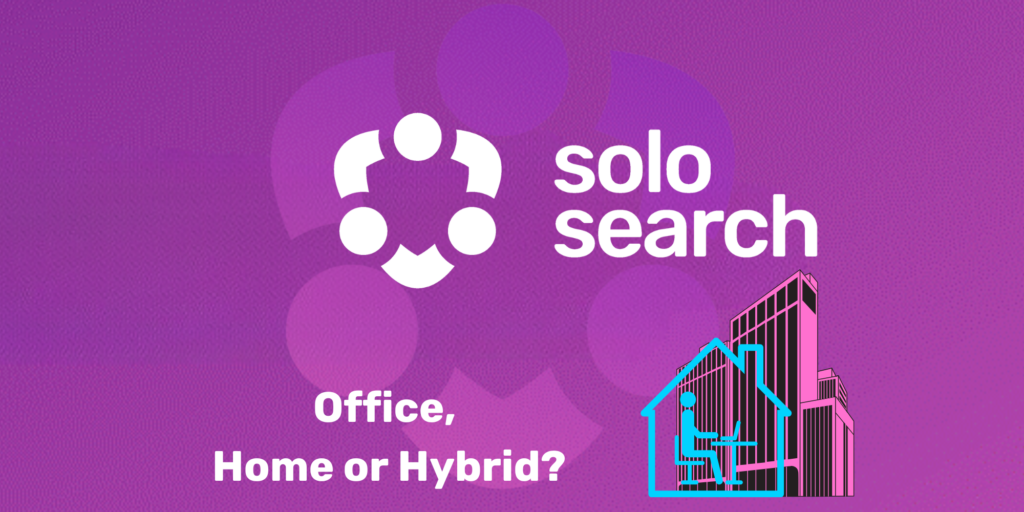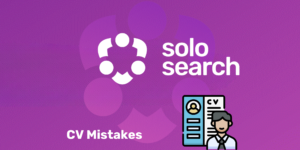
Avoiding Three Common Interview Techniques
Job interviews are seldom enjoyable, but with 40% of the UK workforce planning to change jobs this year, many people will be brushing up on

In the office, working from home or a hybrid? The contentious question at the crux of all of this is:
“Do people work as hard, or are they as productive at home compared to being in the office?”
Let’s be clear, being productive and busy in tech are two very different things. There may be individuals in an office, clicking away on the keyboard and walking around with paperwork, who on the surface have mastered looking busy. Measure this against an individual at home who is not chatting to colleagues has no distractions and feels far more able to produce effectively.
The reality is there are layers to productivity. We know that stress can massively impact the way that people think and act. IT workers who are overwhelmed with the commute and running a home, particularly single parents will find the working-from-home model fits incredibly well with their lifestyle and could increase loyalty towards their employers.
The implication is if an individual is at home, they can’t be trusted to do their job. This certainly leaves a bad taste in the mouths of workers who want to be treated like an adult.
Here’s another question:
How do you measure productivity?
What are the KPIs, the metrics and data that tell you someone is doing their job effectively? Simply put, those numbers should stack up, regardless of where someone is sitting.
Culture
Workplace culture is defined as the attitudes, values and behaviours that are shared by the team. It should be intentionally built and aligned with the messaging and company brand so if we understand that to be shared and created by the people within a business, how does that work when they are not together? That said, if your staff want a hybrid working and you are continually engaging with them then businesses will need to adapt their culture and working models to employees’ desires. Ensuring there are one or two days a week where the entire team is together goes a long way to foster that sense of togetherness.
Innovation and collaboration
In the Digital Health and Fintech sectors, transformation and innovation are central tenets to success. With ever evolving tech and hunger for progressive solutions, you need to recruit a tech team that matches those values. Change and progress are frequently achieved when individuals sit together, critically think, problem-solve, and innovate to reach solutions. There is an argument that this can be achieved through an online meeting, but with half of the communication being non-verbal, it’s fair to say we miss cues online that we’d spot face-to-face.
Death by emails
We’ve all been there; copied into an enormous email trail that in person would’ve taken seconds to deliver. Unnecessary admin and mental traffic distract us from doing our jobs and can increase when people are not in the office together. When measuring this against the idea that being in the office makes you more productive, there’s certainly a strong case to be made.
The tech world is evolving at a rapid pace and attracting and retaining talent, particularly in the fast-paced Digital health and Fintech spaces is essential for success. Engaging with your existing team to understand what they need to be able to perform well and ensuring you have full visibility of the data you need to measure to hit goals, should inform your working policy. The more you engage with the existing team, the more likely you are to be able to build a recruitment strategy using market data that connects to the wants and needs of future hires.
The Solo team want to learn from both sides of the fence so whether you are a Head of IT or work in a tech team, we want to hear your experiences of different working models, good or bad. Why not drop us a line at hello@solosearch.co.uk and we will publish your story anonymously or tag you on our socials if you’re happy to share.
And us? Well, we love working in the office! We’re a people-based business and like discussing things over a desk. Think about how many times you put the phone down or press send on an email only to think “damn, I forgot to ask…” Plus, you can’t beat a bit of office banter!

Job interviews are seldom enjoyable, but with 40% of the UK workforce planning to change jobs this year, many people will be brushing up on

When you’re applying for a job, you want your CV to be the absolute best it can be. This little piece of paper has a
UK health tech and life sciences startups raised $1.8 billion in venture capital investment in Q1 2025, the sector’s second strongest quarter on record, according

LinkedIn is an essential tool for networking and job hunting – but only if used correctly. Many common social media missteps, from awkward flirting attempts

In the fast-paced and ever-evolving landscape of the 21st century, the concept of continuous learning has transformed from a personal aspiration to an absolute necessity.

In the dynamic landscape of job hunting, the collaboration between job seekers and reputable recruitment agencies has become increasingly indispensable. Here’s a closer look at

In the dynamic landscape of business and industry, project management stands out as a versatile and rewarding career path. From orchestrating complex initiatives to leading